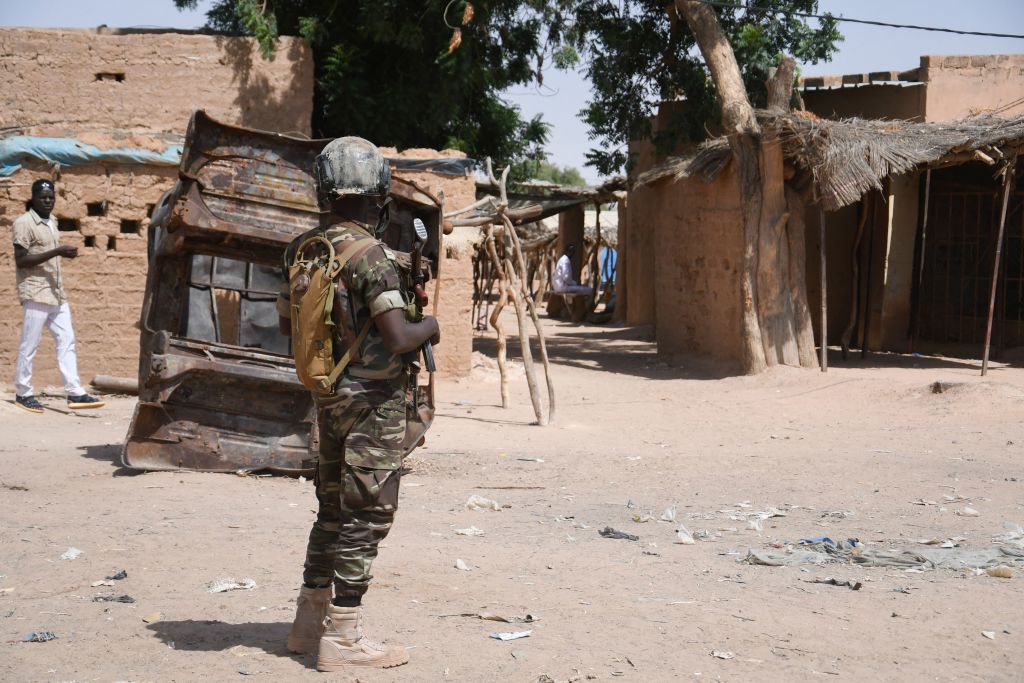ADF STAFF
Plagued by weak governments, riven by internal strife and scarred by violence, the Sahel region now ranks as the world’s epicenter for terrorism, even as other parts of the world have seen it decline in recent years, according to the Global Terrorism Index.
“Terrorism is becoming more concentrated,” said Steve Killelea, founder and executive chairman of the Institute for Economics and Peace (IEP), which produces the yearly index, also known as the GTI, based on data from 163 countries.
It has become particularly concentrated in Sahel countries, which account for 43% of all terrorism deaths worldwide, compared to just 1% in 2007. The region saw an 8% jump in terrorism-related deaths in 2022 at the same time similar deaths were down across the globe, Killelea said as he issued the report.
Burkina Faso and Mali together account for 52% for all terrorism-related deaths in Africa, according to the report.
At the same time terrorist attacks are increasing in the Sahel, they also are becoming more deadly. The number of people killed in attacks grew by nearly 50% between 2021 and 2022.
The hottest spot on the index is the Sahel administrative region of Burkina Faso, where the country meets Mali and Niger. All three countries have experienced military coups driven in part by frustration at the inability of civilian governments to quash terrorism. Military juntas have had little luck at stemming extremist violence, however.
Burkina Faso ranks second on the index behind Afghanistan for the number of terrorist actions and the resulting deaths between 2021 and 2022. Mali and Niger join Burkina Faso on the index’s list of the world’s 10 worst countries for terrorism.
Nigeria, which also is on the list, “has pleasingly improved,” Killelea said.
In the 2023 GTI report, Nigeria recorded its lowest number of attacks and deaths since 2011. Nigerian data analyst Babajide Ogunsanwo told Channels Television that recent public opinion surveys showed a greater sense of security across the country — except in the North West region, which borders Burkina Faso and Niger.
Benin and Togo, which border Burkina Faso to the south, so far have avoided the kind of violence and bloodshed happening to their north. However, the index has captured some worrying indicators, according to Masood Karimipour, chief of the Terrorism Prevention Branch at the United Nations Office on Drugs and Crime.
Benin, for example, recorded an increase of 15 terrorism-related deaths in 2022 — a small number, but one that Karimipour finds alarming.
“We see recruitment and radicalization on the rise, which may be an adverse trend for the future,” he said during the release of the report.
In many cases, Sahelian terrorist attacks are launched by people that Killelea’s analysts call “unknown jihadists,” who express no allegiance to established terrorist networks such as the Islamic State group (IS). Attacks often are driven by local grievances, such as poor government services or a lack of economic opportunities, rather than sympathy with IS or similar groups, according to analysts.
For that reason, governments must look beyond their militaries when responding to Sahel terrorism, Karimipour said. Rather, countries must address the underlying causes, such as economic stress, interethnic conflicts, and resource pressures if they want to rein in terrorism, he added.
“These are not merely statistical data points,” Karimipour said. “These are a matter of life and death to the people of the Sahel.”

